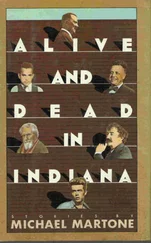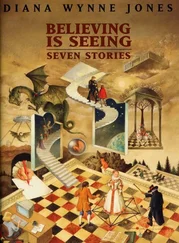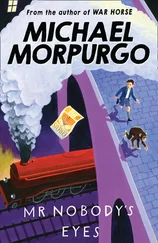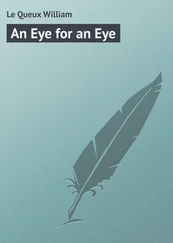Michael Martone - Seeing Eye
Здесь есть возможность читать онлайн «Michael Martone - Seeing Eye» весь текст электронной книги совершенно бесплатно (целиком полную версию без сокращений). В некоторых случаях можно слушать аудио, скачать через торрент в формате fb2 и присутствует краткое содержание. Год выпуска: 2013, Издательство: Dzanc Books, Жанр: Современная проза, на английском языке. Описание произведения, (предисловие) а так же отзывы посетителей доступны на портале библиотеки ЛибКат.
- Название:Seeing Eye
- Автор:
- Издательство:Dzanc Books
- Жанр:
- Год:2013
- ISBN:нет данных
- Рейтинг книги:5 / 5. Голосов: 1
-
Избранное:Добавить в избранное
- Отзывы:
-
Ваша оценка:
- 100
- 1
- 2
- 3
- 4
- 5
Seeing Eye: краткое содержание, описание и аннотация
Предлагаем к чтению аннотацию, описание, краткое содержание или предисловие (зависит от того, что написал сам автор книги «Seeing Eye»). Если вы не нашли необходимую информацию о книге — напишите в комментариях, мы постараемся отыскать её.
Seeing Eye — читать онлайн бесплатно полную книгу (весь текст) целиком
Ниже представлен текст книги, разбитый по страницам. Система сохранения места последней прочитанной страницы, позволяет с удобством читать онлайн бесплатно книгу «Seeing Eye», без необходимости каждый раз заново искать на чём Вы остановились. Поставьте закладку, и сможете в любой момент перейти на страницу, на которой закончили чтение.
Интервал:
Закладка:
Bob Sievers, who had been the morning farm show host at WOWO for as long as I could remember, came on at five. I had first seen him, though I had heard him for a long time before that, when I was in high school. On television, he was selling prepaid funerals to old people. He didn’t look like his voice. And now I heard that voice again thanking Listo Fisher for standing watch at night and then cuing the Red Birds, a local quartet, to sing “Little Red Barn” as he dialed the first of ten Highway Patrol barracks to ask what the night had been like in the state I am calling Indiana.
The sputtering ring of the telephones on the radio sounded swaddled in cotton. It was five in the morning. My head melted into the flannel of the pillow slip. The only sound was the mumble of the connection as a desk sergeant answered in a place called Evansville. He whispered a sleepy monaural hello encased in the heavy Bakelite of an ancient telephone. Bob Sievers, his bass voice lowered a register, identified himself and asked about the weather down there in the southern part of the state. The flat accents of the trooper reported snow had fallen overnight but that the major roads were salted and plowed.
I waited for the next question, lifting my head from the pillow. Bob Sievers’s voice dove even lower. “And Sergeant, were there any fatals overnight?” For a second I listened to the snow of static, the voltage of the phone picked up by the sensitive studio microphones. “No, Bob,” the trooper answered, “a quiet night.” Instantly I would hear the ratchet of the next number being dialed, the drowsy cop, the weather outside Vincennes, then South Bend, Terre Haute, Jasper, then on the toll road in Gary, Indianapolis, Mount Vernon, Monon, and finally Peru. At each post, the search for casualties, the crumbs of accidents. Every now and then someone would have died in a crash. The trooper sketched in the details. The road, its conditions, the stationary objects, the vehicles involved, and the units dispatched, withholding the identities of the deceased until the notification of the next of kin.
There were nights I waited for such notification. I saw my husband behind the wheel of my best friend’s car, his face stained by the dash light of the radio. He is listening to WOWO, the big bands of the early morning, when the car begins to pirouette on the parquet of black ice. I know that the radio is still playing, a miracle, after the car buries itself in a ditch of clattering cattails sprouting from the crusted snow. The last thing he hears, the car battery dying, is the quick, muffled dialing of Bob Sievers, his morning round of calls, and the hoarse, routine replies. I think to myself I am still some kind of kin. Those nights, I practiced my responses to the news brought to me by men in blue wool serge huddled on my stoop.
WOWO is a clear channel station, 50,000 watts. At sunset smaller stations on nearby interfering frequencies stop broadcasting and the signal can be picked up as far south as Florida and out west to the Rockies. Just north the iron in the soil damps the power, soaking up the magnetic waves before they spread into Canada. Listening, I felt connected to the truck drivers in Texas and the night auditors on the Outer Banks who called in to Listo Fisher and told him they were listening. Often they would ask, “Where is Fort Wayne?” as if they had tuned in to a strange new part of the planet. Listo Fisher would take requests, explain patiently the physics and the atmospheric quirks that allowed the callers to hear themselves on the radio they were listening to broadcast by a station days of travel away from where they were. “It’s a miracle,” some yahoo in a swamp would yodel.
One night in the middle of a beguine, a voice came on the radio speaking what I found out later was Spanish. For a moment in my sandbag state, I thought it must be part of the song, a conductor or an announcer turning to a ballroom full of people in a hotel, both the people and the hotel now long turned to dust and the evening just charged molecules on magnetic tape, saying to them good night and good-bye. Thank you for the lovely evening. We’ve been brought to you by United Fruit and now are returning you to your local studios. But the voice kept talking, rising and falling, the r’s rolling and the k’s clotting together. Every once and again I would recognize a word, its syllables all bitten through and the whole thing rounded out by a vowel that seemed endless, howling or whispered.
The telephone rang. It was three in the morning.
“What the hell is that?” my father asked. The words were in both my ears now. I could hear the speech in peaks playing on his radio across town, like a range of mountains floating above clouds.
“Dad, what are you doing up?”
“Listening to the radio when this blather came over it.”
I asked him why he wasn’t asleep instead. The radios continued to emit the speech, a rhythm had begun to emerge beneath the words not unlike the beguine it had preempted. Just then there was a huge crash of static. I heard my father say, “What the —” but it wasn’t static it was applause, and as it trailed off, I heard the voice say the same phrase over again a few times, starting up again, as the cheering subsided.
“Oh,” my father said, “you’re awake then.”
“Of course, I’m awake,” I lied to him. “You woke me up.” I asked him again why he was awake.
“I haven’t slept in years.”
“Well, go to sleep, Dad.”
“You go to sleep then.”
“I am asleep. I’ve been asleep,” I said.
“What’s that crap on the radio?”
“Change the station, Dad. Maybe it’s the station.”
“But I always listen to WOWO.”
I hung up and listened to WOWO. The speech continued for two more hours, punctuated by bursts of applause, the sound then breaking into a chirping chant, steady at first then going out of phase, melting back into itself and the rising hiss of more applause. The voice would be there again. It seemed to plead or joke. It warned, begged. It egged on. It blamed and denied, sniffed its nose. It sneered. It promised. I could hear it tell a story. It explained what it had meant. It revised. It wooed. Toward the morning it grew hoarse. It grew hoarse and dried up. It wound up repeating a word, which seemed too long to me, again and again until that word was picked up by the listeners on the radio, who amplified it into a cloud of noise that this time was static. Then Bob Sievers was on the radio and his theme song was playing.
There are so many secrets in this world. About the time my husband, who I’ll call David, and my best friend, who I’ll call Linda, started sleeping together, two silver blimps were launched in a swamp south of a city I’ll call Miami. They were tethered there to slabs of freshly cured concrete a thousand feet below. I think of those balloons floating there, drifting toward each other, perhaps bumping together finally, and rebounding in excruciating slow motion. The wires connecting them to the ground shored them up, I imagine, so their nuzzling was reigned in, the arc of rotation proscribed. They moved hugely, deliberately, like whales in a tropic bay. Their shadows shifted on the spongy ground below. I am almost asleep, dreaming, when the nodding blimps turn into the slick bodies of my husband and my best friend sliding beneath a skin of sheets, moving as deliberately and as coyly until they are tangled up in each other’s embrace and then that zeppelin in New Jersey bursts into flames and melts into itself, the fire spilling from the night sky. There is a voice on the radio crying how horrible, how horrible to see the skeleton of the airship support, for an instant, a white skin of flames.
The curious in south Florida were told that the bobbing balloons were part of a weather experiment, a lie. Their real purpose was to hold aloft a radio antenna aimed at Cuba. It was propaganda radio. The voice I had heard was Castro’s, Cuban radio’s response, jamming the signal spilling south from the balloons, overflowing on the clear channel all the way north.
Читать дальшеИнтервал:
Закладка:
Похожие книги на «Seeing Eye»
Представляем Вашему вниманию похожие книги на «Seeing Eye» списком для выбора. Мы отобрали схожую по названию и смыслу литературу в надежде предоставить читателям больше вариантов отыскать новые, интересные, ещё непрочитанные произведения.
Обсуждение, отзывы о книге «Seeing Eye» и просто собственные мнения читателей. Оставьте ваши комментарии, напишите, что Вы думаете о произведении, его смысле или главных героях. Укажите что конкретно понравилось, а что нет, и почему Вы так считаете.












